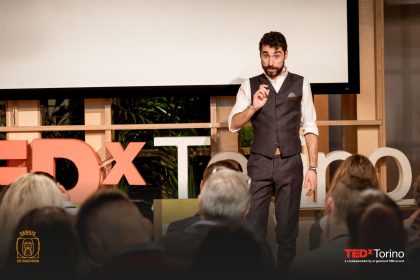Q&A with Prof. Stefano Camera, Physics and Astronomy Chief Editor for Experimental Results

What is your current job title both within Experimental Results and outside of the journal? Where are you based in the world? What is the goal of your research and how does it relate to the journal?
Within Experimental Results, I am Chief Editor for Physics and Astronomy. Given how much specialised research has necessarily become over time, I profoundly like my role, for it gives me the possibility of peeping out of the very specific research area I currently work on—which I love, but that’s another story—to the broader landscape of physics and astronomy as a whole.
Outside the journal, as a former Rita Levi Montalcini Assistant Professor, I am now Associate Professor at the Physics Department of Excellence of the University of Turin, Italy. I am also co-Chair of the Cosmology Science Working Group (SWG) of the Square Kilometre Array, the world’s largest radio-telescope, as well as an active, long-term member of the scientific consortium of the European Space Agency’s Euclid satellite.
Going back to my research, my main interest is cosmology, i.e. the study of the Universe from the point of view of the fundamental laws that describe its birth and evolution. In particular, I am mainly interested in shedding new light on so-called ‘dark matter’ and ‘dark energy’—two utterly mysterious components of the Universe’s energy budget, which nowadays jointly constitute more than 95% of its total content and yet elude our efforts to understand their true nature.
From my viewpoint, my past and present experience well relates to the journal’s purpose and aims: I come from a mainly theoretical background, and over years of academic career I have moved towards the interface between theory and experiments—in my humble opinion, the most exciting spot to be in—to be now deeply involved in some of the most advanced experimental collaborations worldwide for cosmology.
How did you first become familiar with Experimental Results? What motivated you to become an editor?
Due to a fortunate cosmic alignment that put Alison Paskins, Publishing Editor at Cambridge University Press, in touch with me, I got involved in Experimental Results before it saw the light of day. I found the journal’s aims particularly intriguing, especially for the factual necessity in present-day science to revolutionise the role of negative results—too often regarded as ‘bad’ results—as well as for the fully open-access nature of the journal.
Do you have any advice for authors submitting to Experimental Results?
Over these six months in which I have served as Chief Editor for Physics and Astronomy, I have learnt to my bewilderment how deeply rooted is the unconscious bias against negative or inconclusive results. Colleagues are often either not interested in seeing their related research published, or are afraid publishing negative, inconclusive, or supplementary results could actually damage their publication record. In the spirit of truly independent research, this cannot be more wrong.
So, my best advice for authors submitting to Experimental Results is: do it! If your science is sound, people will be grateful you showed to them a certain route was not leading anywhere, or that somebody else had to face the same problems and what this all means and implies.
Find out more about the journal, or submit your research here.






